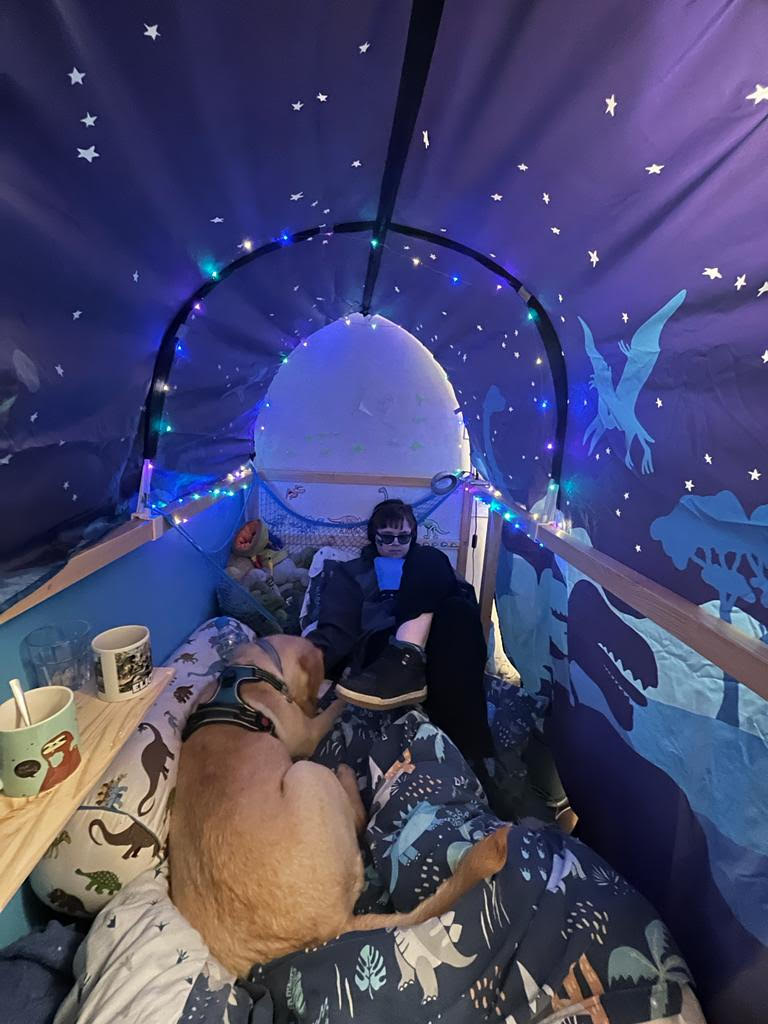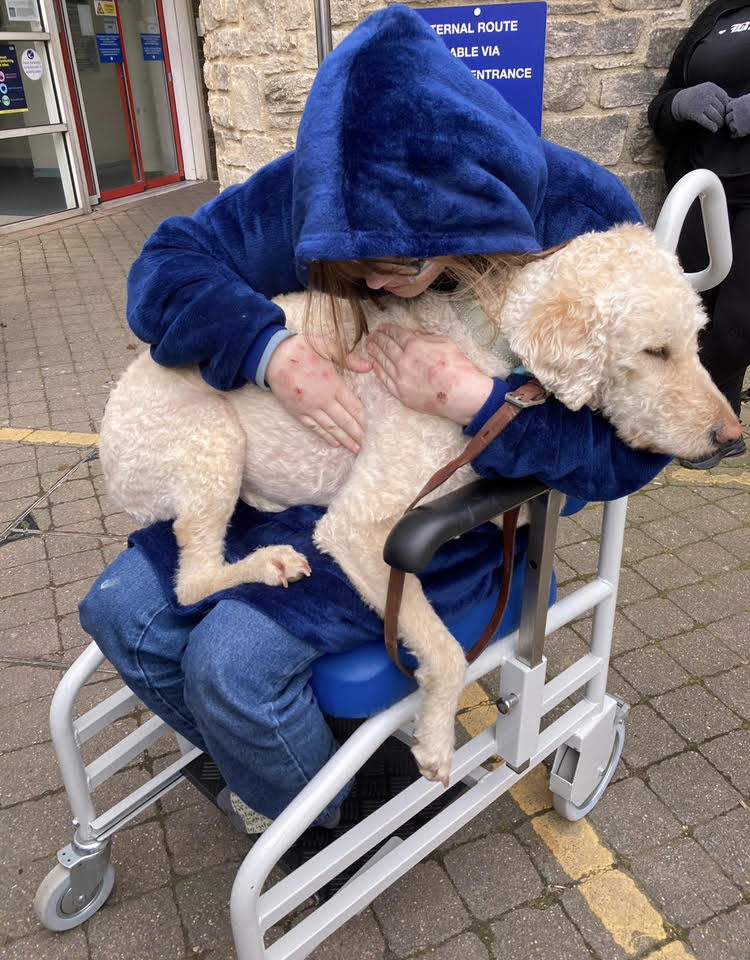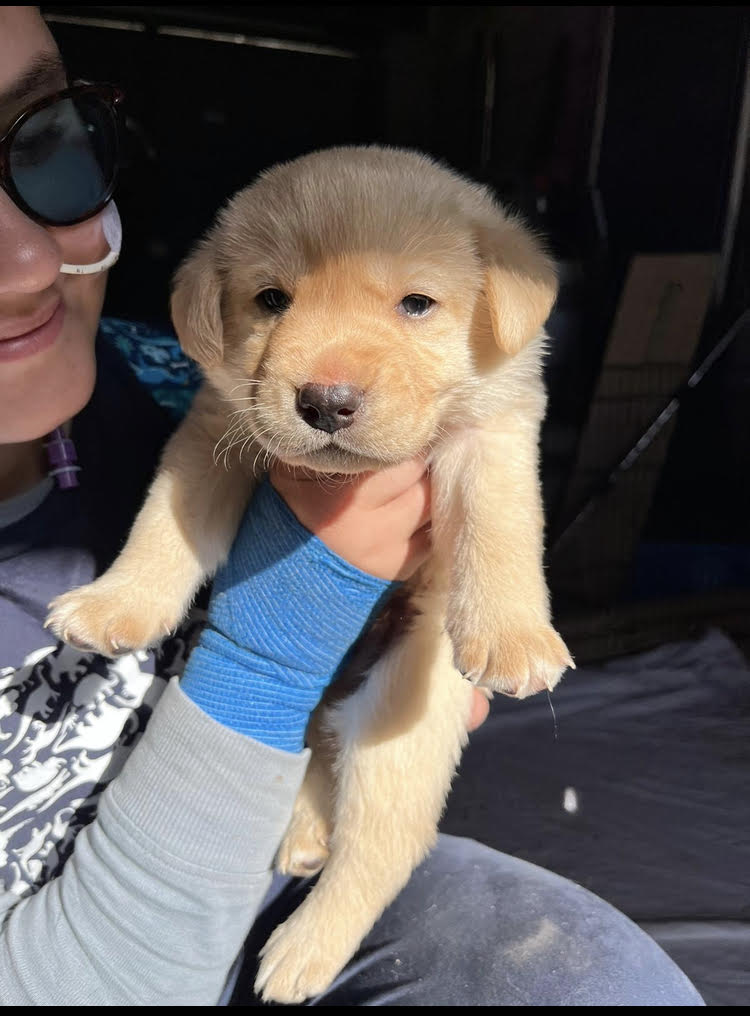Eliot Best is an 18 year-old non-binary person with a variety of complex needs, including those relating to autism and other mental health issues. He gets by with his two ‘Best’s friends’.
By Richard Hill

To cope with his needs, Eliot, from Dorset, relies on the support of two well-trained assistance dogs, eight year-old labradoodle, Curlywurly and one year-old labrador, Rex. These dogs contribute greatly to Eliot’s wellbeing and help him to cope better with everyday life and autism.
Autism can be a complex, debilitating condition that sometimes includes issues relating to gender identity. According to the National Autistic Society (NAS): “Some people identify as the sex they were assigned with at birth, others don’t.” They go on to describe how some people identify as neither female nor male. Eliot prefers to identify by the pronouns ‘he’ or ‘they’.
Eliot explains how autism affects him: “It affects me socially. I struggle with communication and am a little socially awkward. I get a lot of social anxiety and it affects my communication, so I can struggle to talk sometimes and I’m not very good at texting or Facebook and things like that. And I have sensory issues. I’m very sensitive to light and sounds. I have blue tinted lenses in my glasses which help with bright lights. I always wear headphones and I usually have music playing through my headphones (I like ‘Cavetown’ especially) but if people are talking to me or I have to hear someone, then my headphones play a noise cancellation such as white noise which helps dampen sound. I also have social and behavioural challenges. I have problems with people standing behind me and I get anxious when people touch me unexpectedly.”

Calming
Eliot describes how his two dogs help: “Both dogs have given me freedom and saved my life. When I have episodes, they help show me what’s real and what’s not and when I have ‘meltdowns’ they keep me calm. They do so many things for me.”
Prior to meeting Curlywurly,Eliot frequently experienced meltdowns; a powerful response to an overwhelming situation. According to the NAS: “Meltdowns are not the only way an autistic person may express feeling overwhelmed. They may also refuse to interact, withdrawing from situations they find challenging or avoiding them altogether.”
Eliot has spent the past three years in general and psychiatric hospitals due to severe mental health difficulties, “and when I came out a year ago, I was so scared of everything and life seemed so, so hard. Then, I started training Curly (whom I’ve had from a puppy) and then I got Rex and they’ve both been doing so well and have gotten me through the tough times.”

Positive strides
Both dogs have helped diminish episodes of sensory overload by doing things like deep pressure therapy, among other things. “Both Curly and Rex lie on my stomach. They apply some body weight on you.” says Eliot, “It’s a bit like a pressure blanket. It’s quite calming and then I give them a treat.”
Eliot says that his dogs help with his mental health conditions such as eating disorders, OCD, anxiety, complex post-traumatic stress disorder (C-PTSD) and hallucinations. The dogs help by doing things like self-harm interruption and alerts. Rex, in particular, will ‘paw’ at Eliot when he begins to self-harm, alerting him that he is doing it without realising it.
Three days a week, Eliot (along with Curlywurly) attends Aurora Boveridge College, a specialist further education college providing day and residential support for young people with autism spectrum conditions or additional social needs.
“I started last September” says Eliot, adding: “I’m studying maths, English, science, art and animal care. I missed most of my education due to being sectioned. That’s why I’m doing the core subjects as well.”
In many ways, and with the assistance of Curlywurly and Rex, Eliot is making positive strides in dealing with the many challenges in his life.
Useful resources
ASCape: www.ascape.club
Aurora Boveridge College: www.theauroragroup.co.uk/boveridgecollege
MIND: www.mind.org.uk
National Autistic Society: www.autism.org.uk
Pawsable: www.pawsable.com



